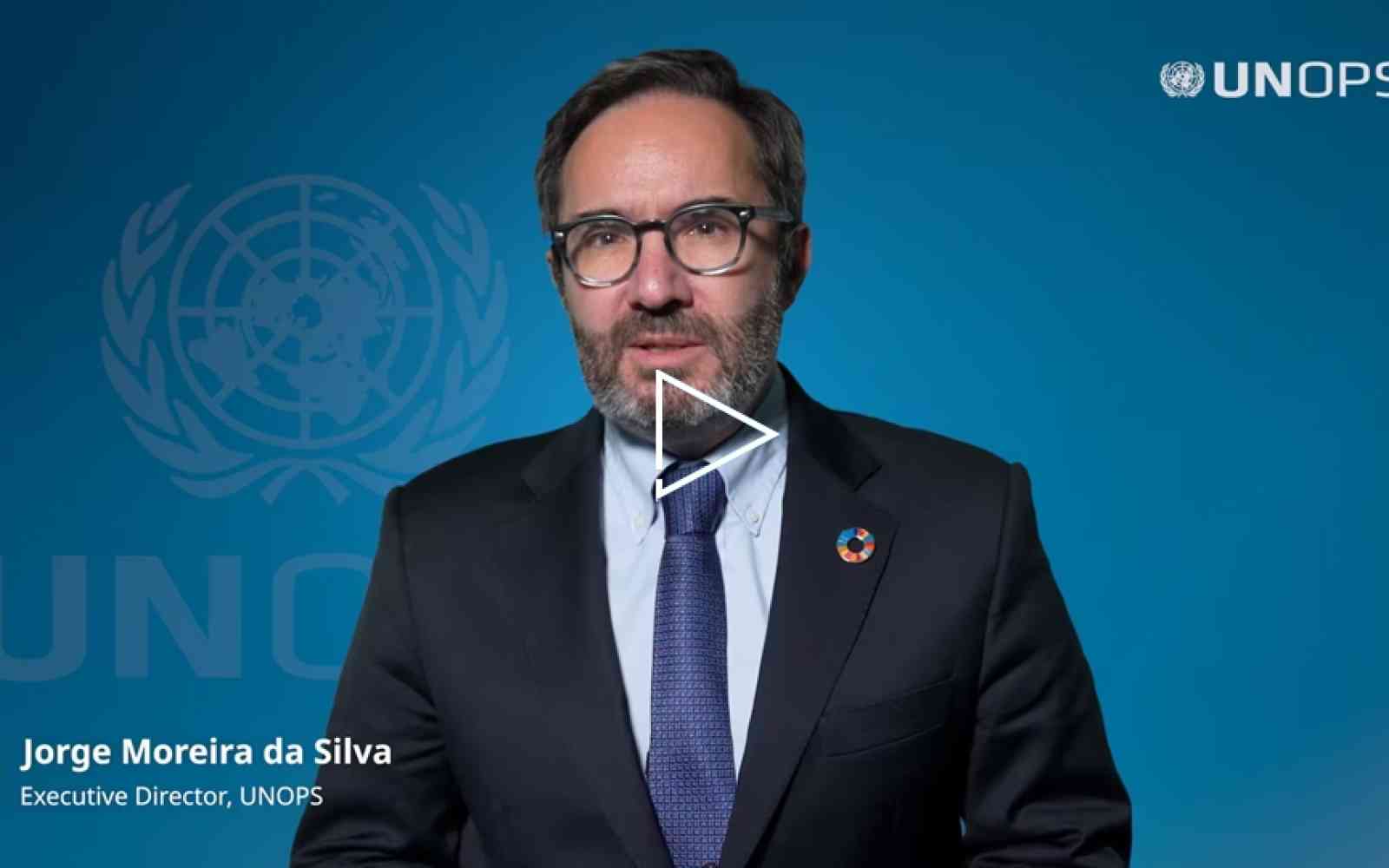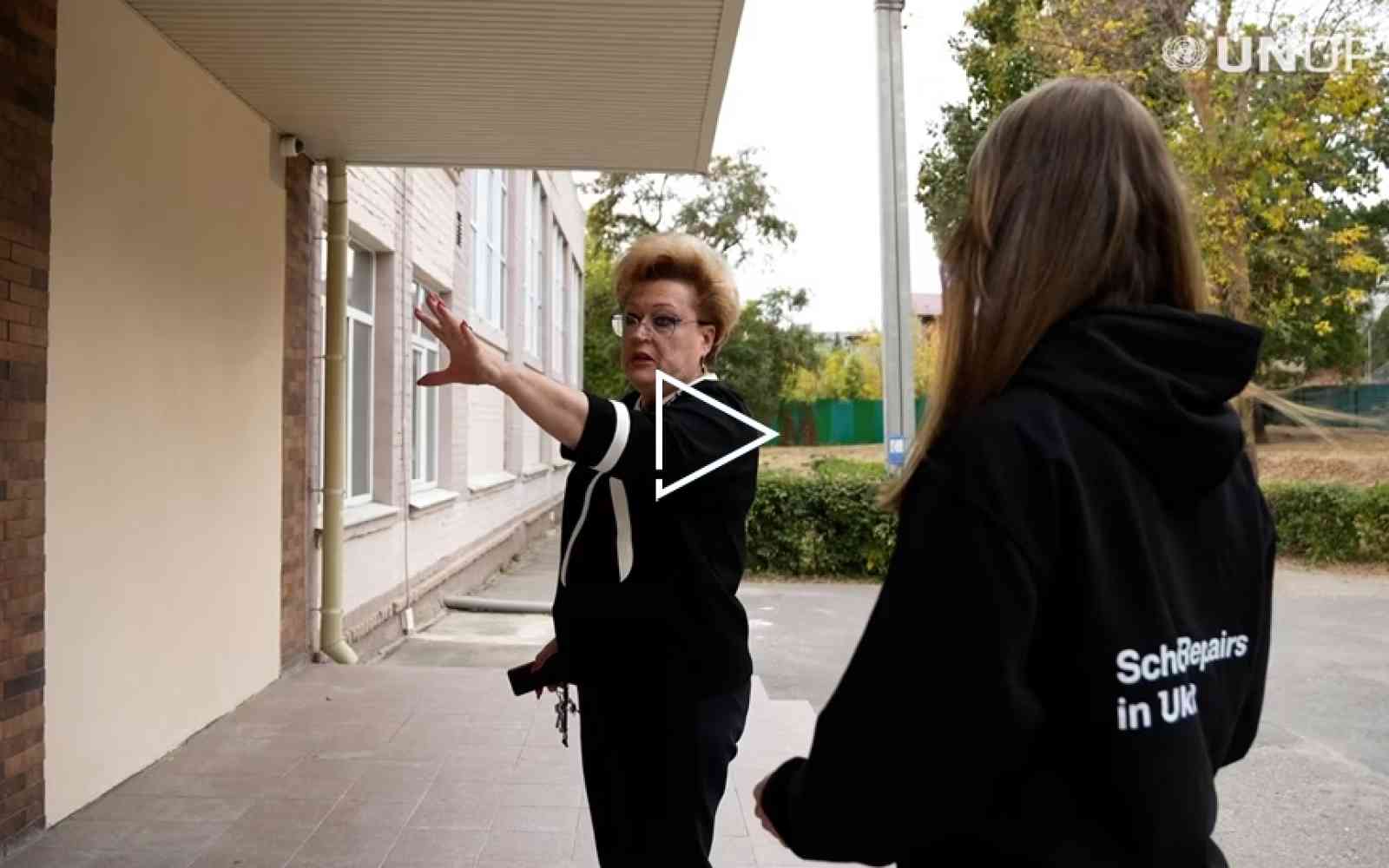The United Nations Office for Project Services (UNOPS)
Keeping Kharkiv warm: UNOPS and World Bank deliver critical energy support
With funding from the World Bank, UNOPS is helping ensure reliable heating services for residents in Kharkiv, Ukraine, by supplying vital equipment under the RePOWER project.
Latest updates
March 2025
- A modular boiler house was delivered. This mobile heat generation unit will be connected to the city’s grid, supporting Kharkiv’s strategy to decentralize heating and improve resilience.
January 2025
- UNOPS delivered repair materials and equipment, including two mobile cranes. These are helping Kharkiv Heating Networks maintain heating systems and quickly respond to damage caused by attacks.
Kharkiv, one of Ukraine’s largest cities, is facing ongoing challenges due to continued aerial attacks. Located near the Russia-Ukraine border, the city’s energy infrastructure has suffered repeated damage, leaving homes, hospitals and public spaces vulnerable, especially during the cold winter months.
For utility workers, repairing damaged systems and ensuring a stable heating supply has become a daily task. These efforts are vital for the well-being and safety of remaining residents, as the war continues to disrupt essential services.
Since December 2024, UNOPS has been working in partnership with the World Bank to deliver critical equipment and materials to Kharkiv’s municipal heating company. The support is part of the RePOWER project, funded by the Ukraine Relief, Recovery, Reconstruction and Reform Trust Fund.
Deliveries include mobile cranes, heating units and materials to repair and decentralize the city’s heating system. By decentralizing energy generation, Kharkiv Heating Networks is increasing its resilience to attacks and ensuring quicker recovery from damage.
These efforts build on a broader collaboration between UNOPS and the World Bank, which began with the ‘Repairing Essential Logistics Infrastructure and Network Connectivity’ project in 2023, focused on restoring key infrastructure across Ukraine.


“With constant Russian attacks targeting energy infrastructure, we are very mindful of having to keep a large stock of materials for repairs,” says Maksym Lenchyk, First Deputy Director at Kharkiv Heating Networks.
“We are also actively decentralising generation, increasing resilience. The items provided with funding from the World Bank give us the tools we need to keep serving the people of Kharkiv well.”
Thanks to this partnership, Kharkiv can continue to provide heating to homes and public buildings, even amid ongoing conflict. The materials supplied are helping utility teams respond faster to damage and prepare for long-term improvements.
“The World Bank has been a key partner for the government of Ukraine, addressing critical needs in the sectors of infrastructure and energy,” says Kostiantyn Kovalchuk, Deputy Minister for Development of Communities and Territories of Ukraine.
“We appreciate the support provided by UNOPS under this project and look forward to continuing our cooperation,” he added.


Deliveries will continue into the warmer months, allowing for critical maintenance during the summer season. This support strengthens Ukraine’s energy sector while reinforcing long-term recovery and development goals.
“At UNOPS, we keep stressing how assistance to Ukraine’s communities needs to be two-fold: addressing urgent needs while laying the foundation for sustainable development,” says Massimo Diana, Director of UNOPS Multi-Country in Ukraine.
“This project achieves both: we are providing Kharkiv with what it needs to maintain its heating grid, but also helping decentralize it, increasing resilience and improving quality far beyond the context of the war,” he added.



















